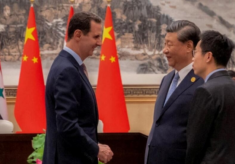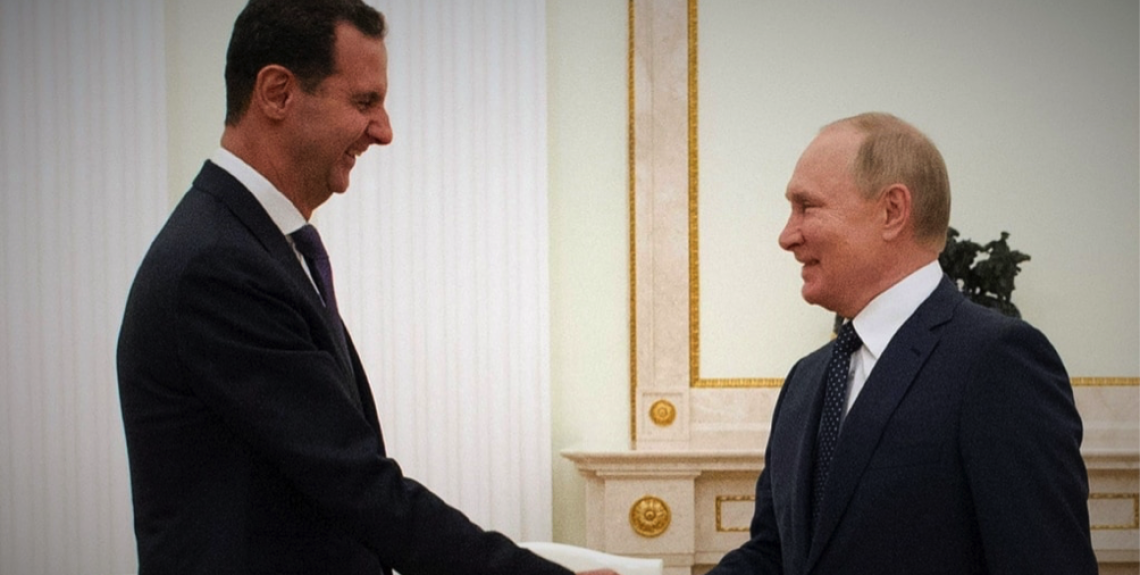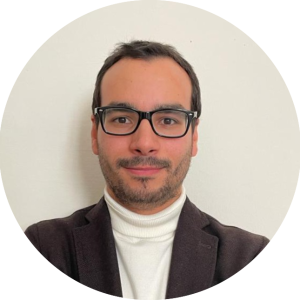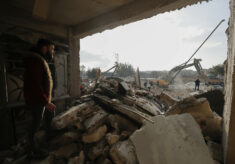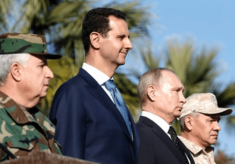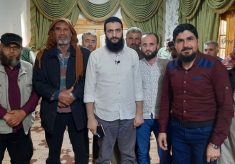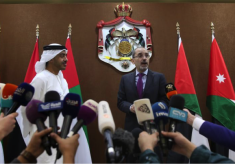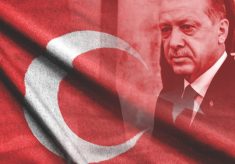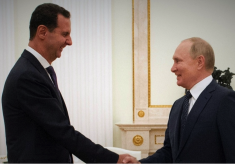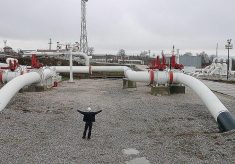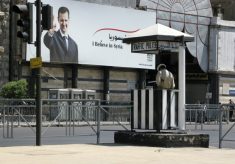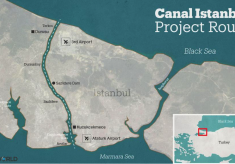On Tuesday 14th September 2021, President of Russian Federation Vladimir Putin met his Syrian homologue Bashar al-Assad at the Kremlin, marking the second official visit of the rais to Russia after that of 2015. Putin congratulated with his counterpart for the overwhelming victory (95% of votes) obtained at the presidential elections held on 26th May, thus opposing the definition given by the United States and the European Union of “unfair and not democratic” process.
He also praised the efforts of Damascus in recovering lost territories that brought government sovereignty up to 90% of the country. “The results show that people trust you – he said referring to his ally – and, despite the difficulties and tragedies of past years, they still associate the process of recovery and return to normal life with you.” A statement that seems to renew the alliance between the two leaders: al-Assad, through this meeting, seeks to strengthen once again his position to consolidate the Syro-Russian partnership. The meeting offered the occasion to discuss three major points: warfare, reconciliation process and business.
With reference to the first issue, both leaders stressed the importance of reducing foreign actors’ involvement in Syria; in particular, the Russo-Turkish agreement has stabilized northern front, limiting Erdogan’s military manoeuvres. Moscow has also successfully contained the presence of the Salafi Jihadist groups in Idlib, especially Tahrir al-Sham.
The formation led by Abu Muhammad al-Jawlani, challenged by internal rivalries, is constantly targeted by Russian airstrikes; however, Taliban’s ascendance in Afghanistan following US withdrawal could boost Jihadists’ morale and it might even constitute an example of modus operandi to emulate.
In addition, Russian cooperation proved fundamental for reconciliation process: for instance, the city of Daraa, one of the first urban centres to protest against the regime during the 2011 Arab Spring, in 2020 has once again revolted, denying the entrance of the Syrian Army. After one month of siege, on the 9th of September the rebels capitulated thanks to Moscow mediation, a fact that shows the weakness of loyalist forces in re-establishing state authority over reconquered areas.
War payments and Russian business interests in the region represent another major theme. In fact, in 2020 a dispute emerged between Bashar Assad and his cousin Rami Makhlouf, the richest businessman of the country, over war debts to Russia. Consequently, part of Kremlin’s establishment was rather dissatisfied with Assad, to the point to ask his replacement with another figure closer to Moscow’s interests. However, such move has been judged too dangerous as it could alter the fragile balance in the Damascene establishment with unpredictable consequences; Putin’s words seem to follow this approach.
Despite the fact that Damascus seems unable to provide a full war compensation, during the meeting Putin has stated that trade with Syria has increased by 3,5 times. This assessment is probably linked to the fact that al-Assad has recently made further economic concessions to his ally, employing Russian contractors for the Arab Gas Pipeline.
In conclusion Moscow, through this meeting, seems willing to continue the partnership that from April 2021 has been extended to Sputnik V vaccine supplies that became essential this summer, since the Arab country is facing a new wave of Covid-19 cases. However, the evident asymmetry of such alliance allows Putin to have considerable leverage on Damascus on his own terms.
